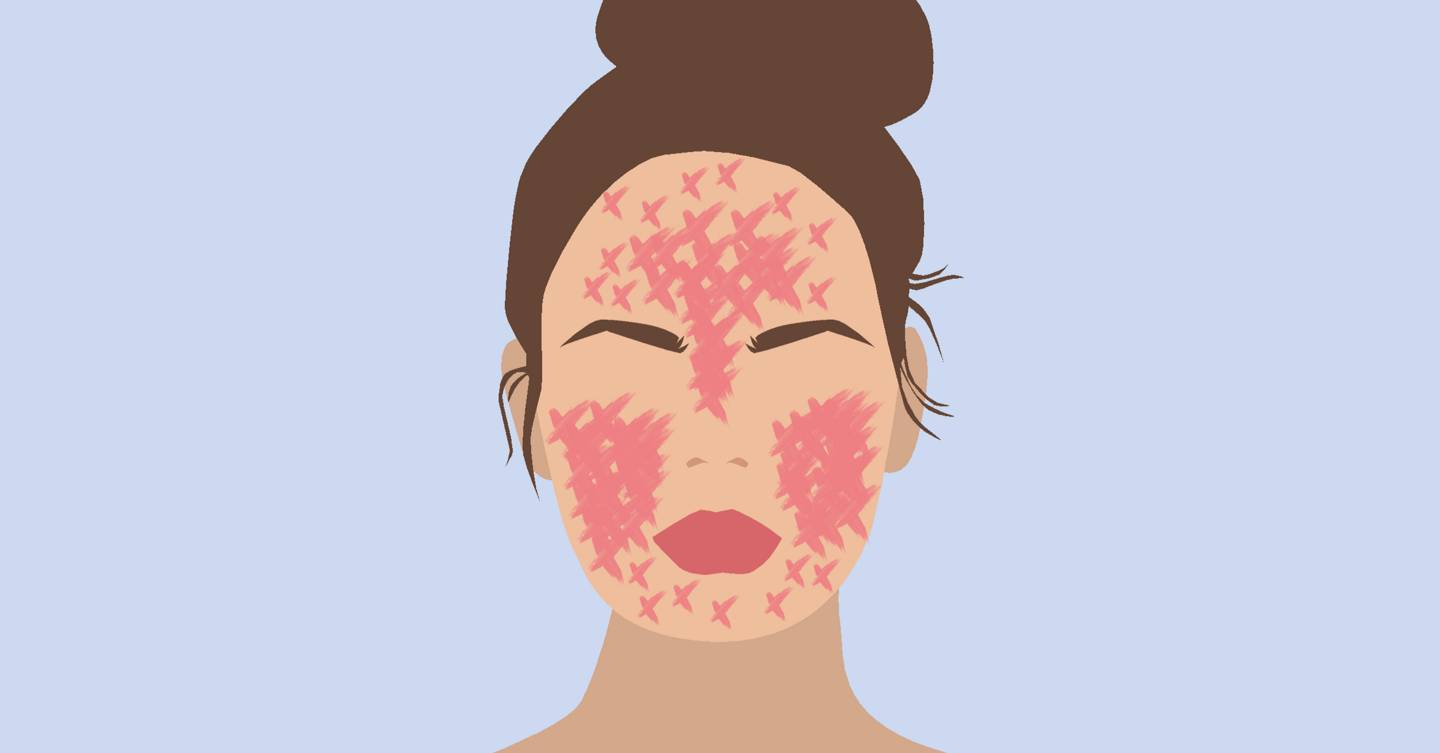Over 60% of women suffer with skin sensitivity, according to a recent study. Though it’s difficult to quantify what exactly sensitivity is – given that it’s so subjective – conditions such as itching, burning, stinging, tightness and dryness are all consistent signs. Also consistent with these conditions, is inflammation, which can trigger all of the above.
Inflammation is the bogeyman of the beauty world and, like stress (which incidentally, triggers inflammation), it’s often declared the root cause of many of the ailments we suffer from today – rashes, spots, even premature ageing, you name it, inflammation probably has something to do with it.
Therefore, it’s worth being aware of what inflammation is, what causes it and how to keep it at bay.
What is inflammation?
“Inflammation is a body’s reaction to harmful triggers. It can be a photogene like a virus or bacteria, damaged cells, irritants or allergens, explains Dr Barbara Kubicka. “If it is short, it’s called acute [and normally not something to worry about], if it’s prolonged it is called chronic – when the body doesn’t regulate a response back to normal and stays in an overactive state.”
What does inflammation do to our skin?
At its simplest, “inflammation in the skin often shows as a rash or an area of redness,” explains consultant dermatologist, Dr Anjali Mahto.
More specifically, “chronic inflammation can be a cause of premature ageing. During the inflammation process the body doesn’t produce collagen or elastin as its resources are focused on fighting adverse stimuli,” Dr Kubicka explains.
But not all inflammation is necessarily harmful. “Acute inflammation mobilises cells to be more active, releases cytokines [small cell-signalling proteins] and other growth factors, helping the body and skin to repair,” she explains. It’s even used during treatments like microneedling which creates small trauma’s in skin to jumpstart the body’s defence system and prompt the renewal of collagen.
What causes inflammation?
“Inflammation is caused by bacterial or viral triggers, mechanical factors (like tissue damage), physical factors (like sun and heat) and chemical factors (such as other irritants),” says Dr Kubicka.
“If you have a sensitive skin type, then you are more likely to encounter inflammation so be careful about what active ingredients – and what quantity of those ingredients – you add into your skincare routine,” warns Dr Mahto. “High concentrations of the active ingredient in a product can cause inflammation. For example, glycolic acid is a great ingredient, however, high percentages of glycolic acid can cause redness and irritation in people with sensitive skin so it’s best to gradually build up the use of high intensity products,” she adds.
Is there anything that can make inflammation worse?
“Inflammation is usually self-limiting so there is no need to do anything unless it’s a bacterial infection. That said, irritating stimuli should be removed because they can make things worse,” says Dr Kubicka. For instance, “if you are prone to breakouts, and you want to decongest your skin, then it’s important to look for non-comedogenic products, which contain ingredients that won’t clog your pores,” agrees Dr Mahto. “I don’t like to use oils or oil cleansers on acne-prone skin. Coconut oil, for example, is highly comedogenic so I’d avoid it if you’re prone to breakouts and blackheads.”
How can we treat inflammation?
Alongside avoiding potential triggers (like sun and heat) where possible, “it’s important to use the right product for your skin type and skin needs,” says Dr Mahto. “I’d always advise researching the products available and consulting with a professional when establishing an effective skincare routine.”
“Look out for lightweight gel formulas and ingredients such as salicylic acid, benzoyl peroxide, witch hazel and niacinamide. When you get a breakout, it’s important to get a product (like salicylic acid) directly onto the acne spot as soon as possible to dry it out and reduce inflammation,” says Dr Mahto.
On top of topical products, “LED red light is an excellent addition,” says Dr Kubicka. “I also advise taking supplements such as Skinaid and alkaline water to help with skin repair.
If you think the cause is bacterial or viral, visit your GP for a proper diagnosis.
Any ingredients you would particularly recommend?
If you’re experiencing a flare up, “vitamins E and C, and aloe vera will help to calm skin down,” says Dr Kubicka, so keep an eye out for products with these ingredients.
